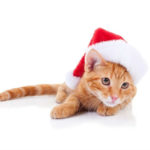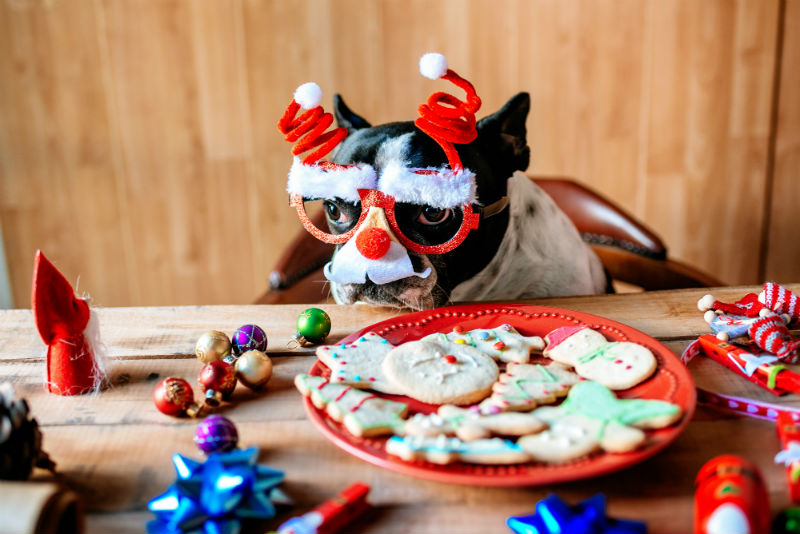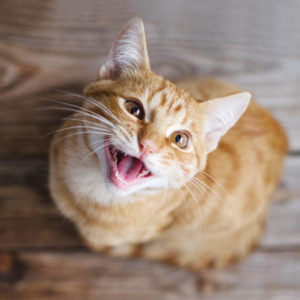With the holiday season upon us, there are a few things owners should be aware of so that the festivities are a happy and healthy time for all members of the family (including the furry ones).
FOOD HAZARDS
Chocolate (baker’s, semi-sweet, milk chocolate): Unsweetened baking chocolate is the most dangerous to pets because it has the highest level of theobromine, which is toxic to dogs and cats. However even normal milk chocolate can be dangerous in large quantities. Pets with chocolate toxicity may exhibit vomiting, diarrhea, twitching or tremors, seizures, fast heart rate and coma and even death.
Rich or Fatty Foods: Delicious holiday meals and desserts are often high in fat, and sharing leftovers with pets is likely to cause an upset stomach. May pets develop vomiting and diarrhea after eating a rich meal, and this may progress a disease called pancreatitis. Pancreatitis is often serious and may require hospitalization.
Grapes and Raisins: A toxin in grapes and raisins can cause acute kidney failure. For a 10-pound dog, just over two ounces of raisins or 14 ounces of grapes can be harmful.
Onions, onion powder: Onions (raw or cooked) can cause damage to red blood cells which may result in anemia in both dogs and cats. Owners may notice vomiting, weakness or pale gu colour.
PLANTS HAZARDS
Lilies that may be found in holiday flower arrangements could be deadly to your cat. Cats are extremely sensitive to some plants in the lily family and may develop kidney failure from eating only a very small part of the plant. The most dangerous lilies are Easter lilies, day lilies and tiger lilies; but all types of lilies such as calla or peace lilies should be considered potentially dangerous.
Poinsettias have an irritating sap that can cause stomach upset and nausea, but they are usually not life-threatening to pets.
Mistletoe comes in American and European varieties and certain types have the potential to cause heart problems, however, it is extremely rare to see any significant cardiac effects in pets. Ingesting mistletoe leaves or berries may cause stomach upset. Consider mistletoe to be a hazardous substance and keep it inaccessible to pets and children.
Holly ingestion could cause vomiting, nausea, diarrhea, and lethargy.
HAZARDS AROUND THE CHRISTMAS TREE
Christmas tree water may contain fertilizers or bleach, which can cause stomach upset.
Electric cords are an electrocution or burn hazard if your pet chews on a cord. Cover up or hide electric cords and unplug them when not in use.
Ribbons, Tinsel or String – Cats are particularly attracted to shiny tinsel or ribbon which they love to chase and pounce upon. If a long stringy object is swallowed it can become wrapped around the tongue or get caught up in the intestines and cause an obstruction. This could become a life-threatening condition requiring surgery for correction. Closely supervise animals playing with string.
Glass ornaments can cut the tongue, esophagus or intestinal tract if swallowed.
OUTDOOR HAZARDS
Antifreeze has an appealing taste to pets. Unfortunately, very small amounts can be lethal. As little as one teaspoon of antifreeze can be deadly to a cat; less than four teaspoons can be dangerous to a 10-pound dog. If you suspect your pet has ingested antifreeze seek veterinary attention immediately.
When in doubt, pet owners should refrain from using remedies found on the internet and always contact a veterinarian for advice.
Written by Dr. Laura McKenny, DVM




